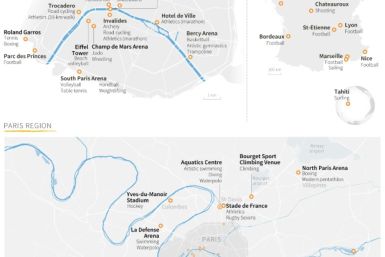Australia's subdued consumer demand to likely halt RBA rate hikes
Australia's consumer inflation rates remained flat in June that may reduce the pressure on the central bank to increase benchmark interest rates in the near term, according to the private-sector led survey by TD Securities and the Melbourne Institute.
The TD Securities - Melbourne Institute Monthly Inflation Gauge was flat last month, after rising 0.2 percent in May and 0.3 percent in April.
That has resulted in a fall in the gauge's headline annual rate of inflation from 3.3 percent in May to 2.9 per cent in June.
More importantly, the trimmed mean of the gauge (which removes the most volatile price movements, and is the Reserve Bank's preferred measure) rose by only 0.1 percent in June to 1.8 percent for the financial year.
TD Securities head of Asia-Pacific research Annette Beacher said in a interview with ABC News Online: "It's telling us, after a particularly strong run in the first quarter, it looks like prices have taken a bit of a breather in the second quarter."
She added that has changed her two interest rate rises this year to one if other data keeps showing the economy is still on its lackadaisical mode.
Ms Beacher added in the ABC News interview that if other important indicators including employment and inflation numbers remain weak in the second quarter, the interest rates will likely be maintained by the Australian central bank.
Electronic price rise
The June inflation figures showed an increase in audio-visual and computing prices for the first time she can remember.
She says that may mark a turning point where Australia starts importing inflation, rather than deflation, from Chinese manufactured goods.
"Audio-visual and computing prices actually increased, and that is certainly a sector that has been well under control over the last few years, as primarily they are imports from China," she said.
While electronics prices were on the up, books and newspapers recorded a fall.
Ms Beacher said, while it is hard to draw direct links to the liquidation sales at Angus & Robertson and Borders book stores, the book retailing, publishing and print media industries are all still struggling.
Other goods that showed price rises were fruit and vegetables, and holiday travel and accommodation.
Rents also continued to creep higher, and the 2.8 per cent annual increase is the fastest for two years.
Fuel and clothing and footwear recorded price falls in June, the report indicated.






